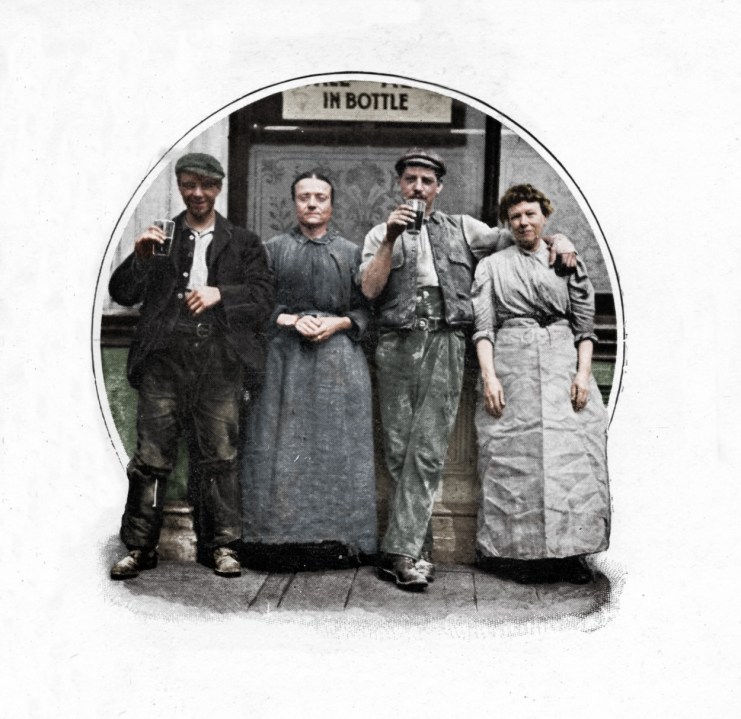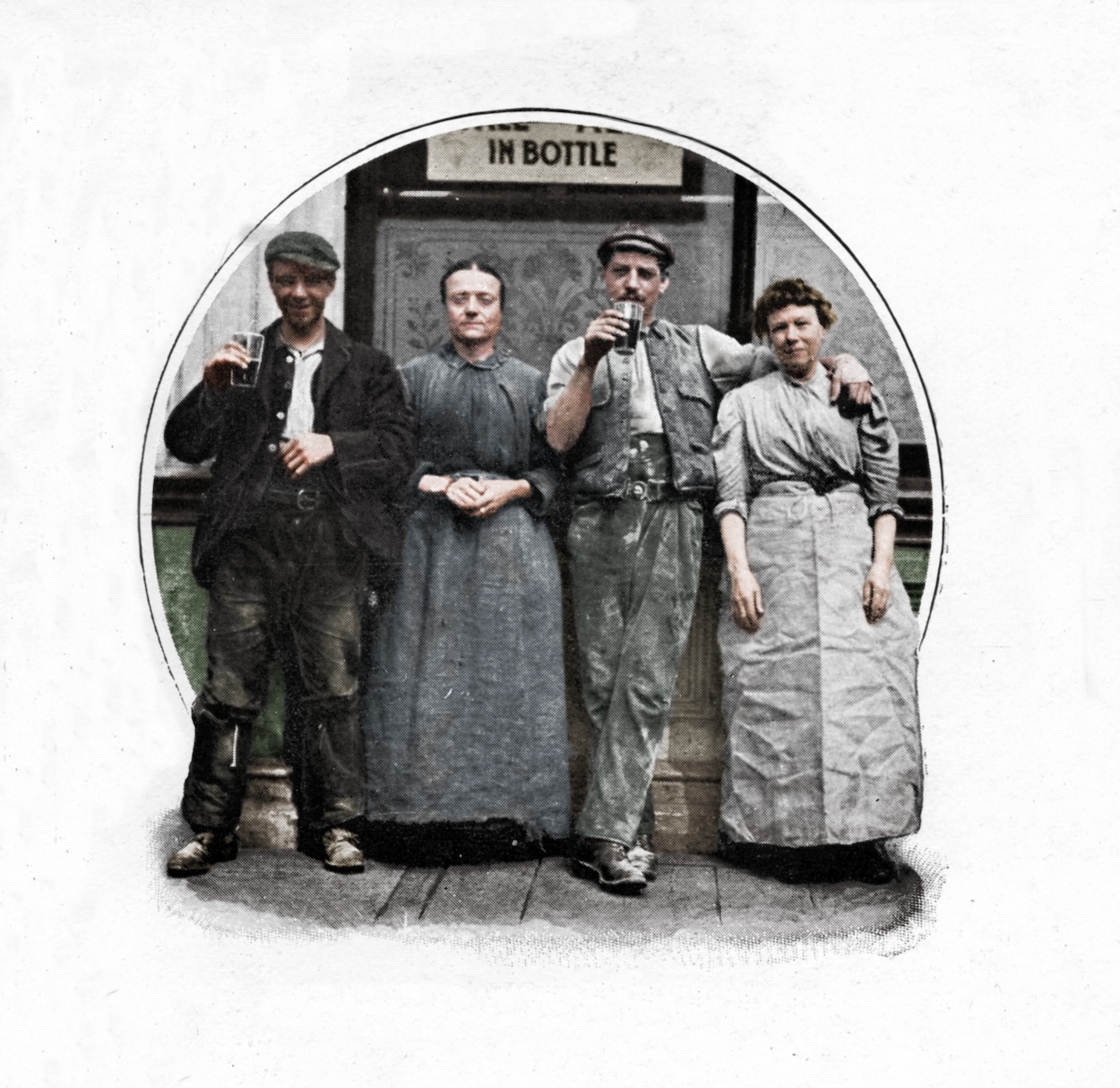The regular’s stage is the fetid pub carpet, the creaky floorboards, the cramped smoking area where they can sneak a shot between rounds. Their audience is the jaded, spotty bartender, the unsuspecting family looking for a quiet Sunday lunch, and any poor soul too cowardly or inebriated to walk away. Regulars are the backbone of the British pub trade, but their time has come to an end. Gen Z has rung the bell for last orders.
A recent survey found that 43 per cent of 18-to-34-year-olds have given up booze altogether. Thirty-six per cent of that same demographic are using non-alcoholic substitutes to curtail their drinking, and ‘bingeing’ – drinking more than four pints in one sitting – appears to be on the decline. In short: booze is out of fashion, and so is the pub regular.
I worked in bars for seven years. I met enough regulars to fill three JobCentres. I served them, drank with them, argued with them, grew to understand them and unsuccessfully tried to become one of them. I first became acquainted with the pub regular when I was 17. I’d taken a weekend job as a glasswasher at one of south London’s busiest pubs. It was a transient place, the sort of establishment where people drank half pints and stared vacantly at the broken fruit machine until their trains came in. This pub – much like any other pub with Kronenbourg on tap, a blocked toilet and a bin full of heroin needles – had a loyal group of regulars. That ragtag posse of devoted drinkers who saw this glorified halfway house as a home away from home. It was here that I learnt being a regular is a career. It was also here where I learnt that every regular is essentially a variation of Statler and Waldorf from The Muppets. The first time I poured John his Guinness (all regulars are called John, Pete, Dan, Steve or Gary – Keith being the wildcard if you’re north of the M25) I was given the obligatory hairdryer treatment.
‘Oi, David Cassidy’s mangled little brother, what do you call this?’ he taunted, pointing at the black stuff. A few of the other regulars jeered from their various perches. I can’t remember what I said, though I’m sure it was something intimidating and self-assured like, ‘Sorry, John. I’ll do better next time.’
I spent the following seven years moving around England, picking up bar work wherever I landed. Pub regulars became familiar faces, confidants, friends. Yes, they were all at least 20 years older than me, but they were the most interesting people in any given establishment. There was Baz who claimed to be a founding member of Massive Attack. Baz would sit in the garden all day with a seemingly endless half pint of Peroni, his aviation headset blaring drum and bass loud enough for the whole neighbourhood to hear. There was Big John, the elderly Irish man who kept trying to squeeze my bum and threatened to ‘take me home’ on more than one occasion. He was far too slow to catch me. There was Stan-Stan the Moretti Man who would sit in the corner playing Shut the Box on his own; he lost every time. There was DJ Nigel who claimed to be the finest MC in London and once said that he was best friends with Elvis Costello: ‘Me and Elvis go way back! And I played drums for Chaka Khan! Zakky Boy, sling us another drink … I’ll pay for it tomorrow.’ And I’ll never forget Old Man Mark with his Indiana Jones hat, toothless smile and sordid stories about the sexual escapades in his Kensington care home.
These characters had no idea that they were an endangered species. They still staggered about the room with an air of prestige. They still expected you to listen with bated breath as they recounted a fabricated story about killing a man in Guatemala. All of them insisted on having a discount: ‘Go on, Zak, knock off a few quid. This place wouldn’t run without me.’ More often than not, they owned some rabid little demon dog. The dog was usually called Princess, Plum or something terrifyingly human like Franklin.
As I hopped from bar to bar, it dawned on me that all regulars went to the pub for the same reason: loneliness. The pub is their safe space, their church, their point of human contact, their basecamp; it’s all they know. But this isn’t the case for Gen Z. I was a student when the pandemic began. My generation certainly missed the pub, but it was nothing compared to the loss felt by those older, more seasoned drinkers. The introduction of lockdowns, social distancing and pub closures hit regulars like an eviction notice after a messy divorce. One of our regulars felt so adrift, so devoid of purpose without his watering hole, that he dragged a ladder to the pub, clambered to the second floor where the general manager lived and banged on her window like Nosferatu.
I spent most of my time in the pub, alone. I’d work there, drink there, eat there
I didn’t realise how distanced Gen Z was from the world of pub regulars until I tried to become one myself. Moving around so frequently meant that pubs became a sanctuary for me, a place to sit alone without feeling alone. This is the first step to becoming a regular. When I moved back to the Big Smoke after a spell in Devon, I took a cheap and smelly room in south-west London, marooning myself from friends in Finsbury Park and Hackney. I spent most of my time in the pub, alone. I’d work there, drink there, eat there; it became my second home. But I was the youngest regular by at least 15 years.
When I saw my friends, I’d ask them what they had been up to. They would say worthy things like ‘joining a running club’, ‘opening an ISA’, ‘taking improv classes’, ‘selling clothes on Vinted’, ‘making horrible pizza in my dad’s £800 pizza oven’. The pub was never mentioned. Whenever I revealed that I’d been to the bar on my own, I was met with looks of pity and the occasional question, ‘Is everything all right, mate? Do you want to talk about it?’
This attitude shift has been gradual. Each generation tends to drink less than the last. Millennials drink less than Gen X and Gen Z drinks 20 per cent less than Millennials. As the world turns, we find new and safer ways to alleviate that pesky feeling of isolation: chat rooms, dating apps, streaming services, AI girlfriends. We no longer need to leave our houses to feel connected. But is this a good thing? We live in an increasingly lonely world. The connection offered by the internet is a transient one. Turning our backs on solitary binge drinking at the pub is not a bad thing; the remedy for loneliness isn’t alcohol. But I do wonder if our newfound hobbies are always better. Loneliness is as endemic now as it was 30 years ago. A recent study found that 79 per cent of Gen Z feel lonely some or all of the time. The pub regular may be a dying breed, but the pub shouldn’t follow them to the grave. Besides, you don’t have to drink while you’re there – there’s nothing wrong with having a solitary glass of cranberry juice and savouring the chance to be among people.








Comments